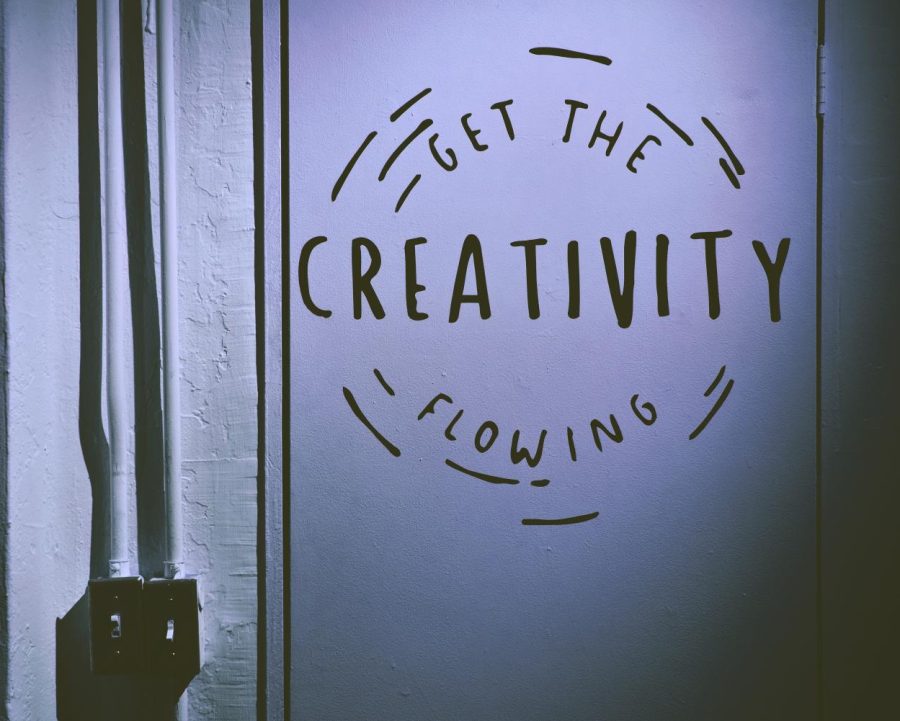PRO/CON: Creativity is Vital for Success
October 4, 2022
PRO
Envision yourself in a school that offers solely core academic classes: Math, English, Science, and Social Studies. That’s it. The opportunity for students to explore new ways of thinking would be completely stripped from them without the elective courses that allow them to think liberally.
Whether it be in a school, career, or everyday life, creativity is a crucial element that is needed for the success of every individual. The ability to foster original methods or ideas is one that will always be an advantage and never a hindrance, being why elective classes, for example, are essential to the academic success of a student.
Creativity is the fuel for innovation and the foundation for success. In a career setting, specifically, a common quality listed under a resume is creativity. One of the biggest traits that sets a person apart from their competition is their capability to improve the business or company with strategies never thought of before. Without creativity, innovations in businesses would not exist, stunting the growth of the business altogether. Elaborating on this point, in “The Importance of Creativity in Business” for the Harvard Business School Online, contributing writer Michael Boyles argues, “One of the main hindrances to a business’s growth is cognitive fixedness, or the idea that there’s only one way to interpret or approach a situation or challenge.” Boyles goes on to clarify the difference between creativity and design thinking, two concepts that are commonly confused but are linked to one another.
While it is widely known that creativity is needed for businesses that focus on visual art or graphic design, for example, other careers that may not be immediately associated with creativity, but still very much need creativity to succeed include computer science in the developing process, marketing for reaching target audience, or even lawyers when problem solving. Regardless of the career, the practice of divergent thinking is highly valued as it is one of the most propelling skills to have under your belt that increases chances of success.
A commonly held argument is that rather than having a creative mentality, it is more beneficial to be a “doer” than waste time on imaginative elements. While this is a valid point, what they fail to realize is that there are many forms of creativity, not just one. Cognitive creativity can range from Divergent Thinking – brainstorming various solutions, Convergent Thinking – finding the single best approach to a situation, Deliberate Thinking – new ideas that rely on existing knowledge, and numerous other forms that fall under the creative umbrella. With this in mind, it is crucial to understand that creativity does not always refer to imaginative thinking, but is oftentimes the first step in getting the ball rolling.
Daring minds and unorthodox thinking is always valued because it is very refreshing to see the world with a whole new set of eyes. Without the creation of ideas and the thought behind the innovation, nothing would be accomplished. Creativity is the building blocks to every invention, idea, or innovation, as it is the encouraging factor to all action, and forces people to think outside the box which is one of, if not the most fundamental skill needed for success.
CON
“Creativity is seeing what others see and thinking what no one else ever thought.”
Albert Einstein, one of most influential physicists of all time, admits that creativity is complete originality from others viewpoints. The reality is that most of the human population are incapable of forming entirely new perspectives.
While some may believe that humanity was built through the creativity of people, it’s not a fundamental way to have a successful life. A true thriving society or individual is formed through structure and how we train ourselves to rely on basic, fundamental principles. If we shift our focus to implementing only creative ideas, it will delay us from our true purpose.
Theodore Levitt, former editor of Harvard Business Review, writes in Creativity is Not Enough that “having a new idea can be ‘creative’ in the abstract but destructive in actual operation, and that often instead of helping a company, it will even hinder it.” This thinking can be applied to generally anything. From a business standpoint, employees have always been told to be the next difference or big change in a company. This adds immense pressure in the work field, making people forget what they are aiming for and instead focus on being creative. In reality, we need more people who are focused in their own field, masters in a subject who push a business forward .
Stability is an individual’s greatest asset in succeeding. It strengthens focus and dedication in a person’s life. If everyone tried to push a different mindset or path, a community or even an individual wouldn’t prosper as much compared to people who share the same skills or ideology. This doesn’t mean giving up on trying to be creative, it means that you should have more confidence in yourself with what you have to offer, especially if what you have to offer is stability and focus.
Creativity alone is not enough for success. The truth is creativity is just a thought while innovation is an act. In Creativity Is Not Enough: Too Many Idea People, Too Few Innovators by the Corporate Learning Network editorial staff, they agree that “Lack of creativity is not the problem in most organizations. Great ideas always abound. The real problem is converting an idea, which in reality is just a good intention, into operational reality.” Though creativity can be seen as a stepping stone for innovation, only real dedication for something will bring results, leading to full success of an individual and a team.













































